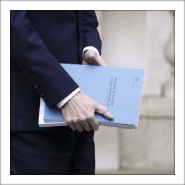
CPS Head of Economic Research Daniel Mahoney responds to the Autumn Statement:
George Osborne is right to avoid increasing marginal tax rates on the low paid, so in that sense it is welcome that he’s withdrawn his tax credit plan. The commitment on police spending will also come as a relief to many in the current climate.
However, it’s difficult to see at first glance how these changes will be fiscally neutral. For 2016-17, the Government’s own figures suggest that the net effect of the Autumn Statement will be a loss £2 billion to the Exchequer – although it should be noted that this equates to just 0.25% of Government spending, highlighting that the overall changes in the Autumn Statement are relatively small.
While it is disappointing to see Osborne recommit to ring-fencing, particularly on the triple-lock and international aid, this was to be expected. On a more positive note, Osborne’s emphasis on house-building is welcome. 400,000 additional homes, new planning reforms to boost construction and releasing public land for building could help tackle Britain’s chronic housing problem. The creation of a business led body to improve the quality of apprenticeships may also help plug skill gaps in construction and other skilled industries. Of course, a finer look at the detail is required, but the Government’s initiative on this is a step in the right direction.
Date Added: Wednesday 25th November 2015